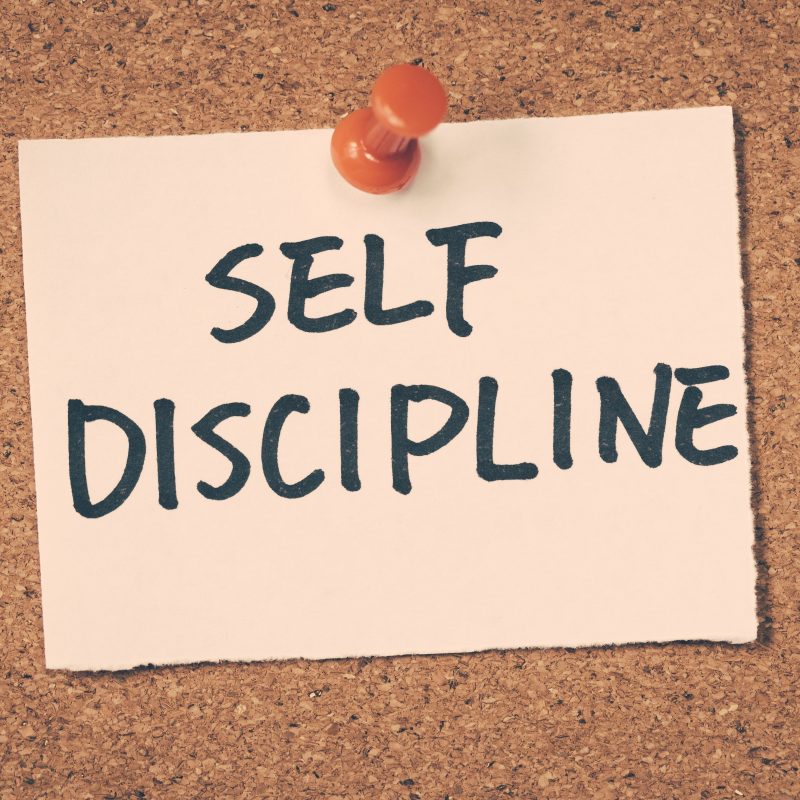
There are many formulas for success when it comes to health and fitness improvements. Starting with an idea and building on it so that you are attaining the physique or performance goal set forth is no easy task. During the journey, your personal training clients will have obstacles and that must be overcome to attain the goal that require discipline, determination, and dedication (in no particular order).
The Body Transformation Success Formula provides tools that will help your clients face these obstacles with more ease; the development of the three Ds: determination, dedication, and discipline are the qualities that, when combined and employed, are a recipe for success.
Success formulas and success programming tools are different constructs. The Success Formula is a step-by-step recipe, sequence, or set of directions to attain success. Success programming tools are traits that are used over and over to work on your formula. If you were going to make a cake or fix a car there is a certain sequence of doing things to get the correct outcome, right?
You would also need the right tools to get the job done efficiently and done right the first time too. You shouldn’t try to make that cake without mixing the ingredients before you put them all together in a pan in the oven, right? Of course not! The point is this: every job has a sequence or formula, and every job has the right tools to do it with ease and efficiency.
Defining The Three D’s: Tools for Success
The formula for success involves this process: Events (E) + Responses (R) = Outcome (O). One can choose to attribute good or bad events for their success or lack thereof or they can place a higher emphasis on their response to those events. Successful people focus on their response to events that are beyond their control. This is where the three D’s come in.
Determination, Dedication, and Discipline are the three D’s, the tools for achieving success. Some people harness them from something else they successfully tackled in the past; others find them naturally easier to tap into, and use them to their advantage. Others never observe their value, ignore them and ultimately fail at what they are trying to achieve.
These tools are extremely powerful when acknowledged and developed. If there is one thing in common among those that maintain a healthy lifestyle is that they all use the mental sharpness and focus from these three tools to stay on track. Everything in life becomes easier when you develop the three D’s so use them on a regular basis.
Another way to define the success formula is to define a goal, implement a strategy to achieve that goal, and to employ the action aligned with your strategy. During the action phase of the success formula, one must both evaluate and adjust (this is where you are responding to the events).
For example, your client may decide they want to lose weight. Period. That’s the goal. The strategy to achieve that goal is to restrict calories. The action they employ is trying to eat smaller servings at each meal. But what they find when they implement this strategy is that they are too hungry between meals, and therefore, end up snacking on other foods and at the end of the day, not eating fewer calories at all.
This is where an evaluation of the action is necessary (perhaps smaller portions is not the optimal approach?) and adjust the action (instead, they try to eat more protein to stay fuller longer) to achieve success. Too many people think they have failed and quit when they are not losing weight based on their first strategy. Employing the three D’s will ensure success is not thwarted by an inefficient process.
Determination
Most people who start eating differently and implement an exercise program will find they have a great deal of determination at the start to accomplish the goal of lifestyle change. After two to three weeks of consistency in a program your client should see some positive results. Whether it’s feeling more energy, lost weight, or an increase in output, or simply feeling less bogged down by the challenge as the habits are becoming integrated, it makes one feel a little stronger mentally.
Before they get too comfortable, remind your client that the initial battle has been won, but the war of instilling permanent change is still raging. Tell your client to congratulate themselves and to not stop there: “Look at what I just did, I know I can do more now”.
Dedication
Invest this feeling of determination back into your Success formula. As your client continues to do this again and again over a period of time it forges another powerful mental tool: Dedication. This is the second tool of Success Programming you will discover and build from the Success Formula. At some point in time in their program, a strong work ethic will need to evolve from the constant channeling of Determination back into the Formula.
Dedication has many meanings. What you have created is the devotion of one’s self to some special work, action, or person. You are devoted to doing this program for something or someone. You have already determined your goal and why you want it and now you are dedicated to getting it done. Now that you have created two mental tools that assist you in your efforts to reach your goal, the final tool should appear after reinvesting determination and dedication into your success formula. Your Determination and Dedication tools will help you create the most powerful mental tool that exists, and it’s called Discipline.
Discipline
Discipline sometimes has a negative connotation. We are going to use it in a more positive way to keep your clients focused on being successful. Think of it more like a conditioning effect. The more times you repeat the investment of using your Determination to build your Dedication, eventually you will not have to think about the goal at the end of the Success Formula. The powerful conditioning effect of Discipline will keep your personal training clients from falling off the journey’s path to success.
Discipline provides focus, drive, and energy when times are tough and someone doesn’t possess the same enthusiasm to achieve a goal. Discipline places one on autopilot. When discipline is high it is difficult to fail and it is almost impossible to not reach a goal, because consistency in a healthy lifestyle will remain high.
Discipline is one tool that will cross over into everyday life. Anyone that has ever created a high level of discipline from a diet and exercise program for a long period of time knows everything else in life is easy. To be able to act and respond to one’s own mental requests with zero hesitation or procrastination will make one successful and there is no doubt about it.
Discipline is a powerful tool, it can be developed, and when it is used it can overcome the highest obstacles. The interesting thing about Discipline is the more you use it the more you master its power. It makes everything you do a breeze. You will no longer have to muster up a lot of energy to exercise or make good food choices; discipline will make it automatic.
Instilling Discipline, Dedication, and Determination
Think of the Three D’s as a progressive toolset: Unless your client is already a disciplined person with regard to healthy lifestyle, it will be difficult to implement this skillset without starting with determination (which they have if they have employed you). Dedication is really critical to developing discipline since it is rooted in one’s intrinsic motivation: do they want to do the work, or do they think you will do the work for them? This is a question they must face and answer before becoming dedicated to their endeavors.
By employing some masterful active listening skills and motivational interviewing, you can help your clients resolve ambivalence surrounding their dedication. And once they’ve conquered that hill, the mountain of instilling Discipline will be a much easier challenge to overcome.







